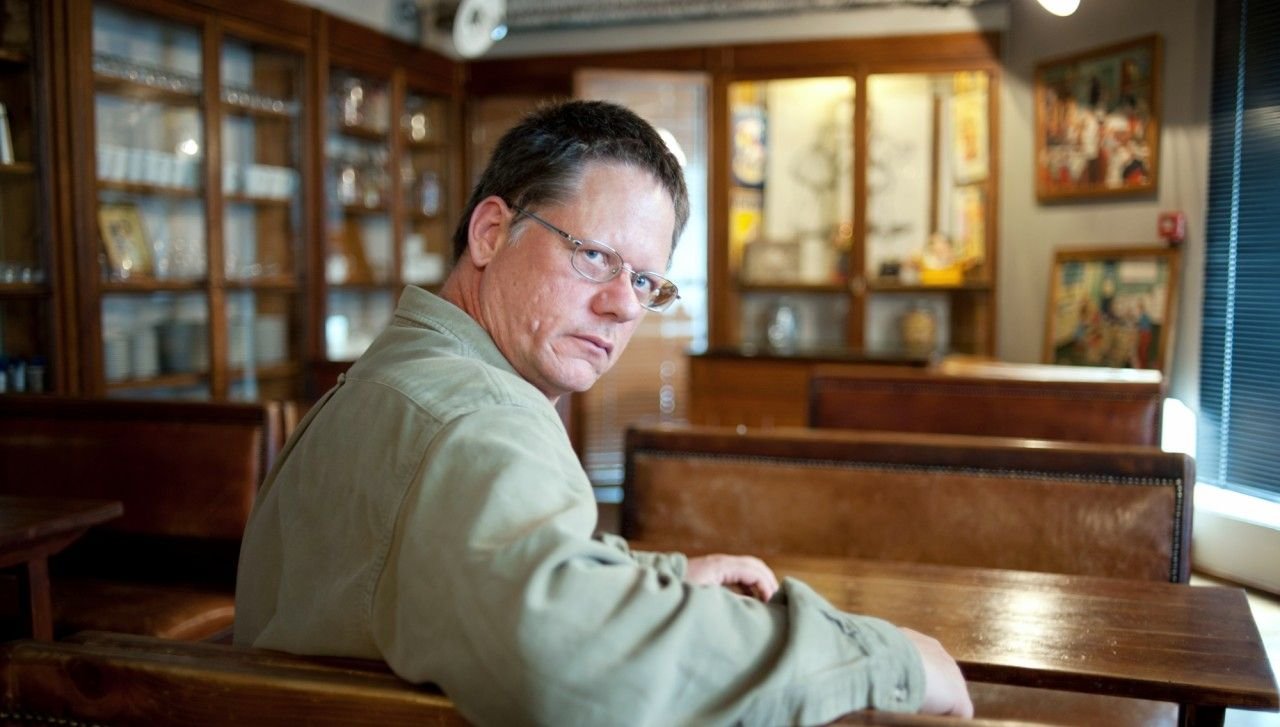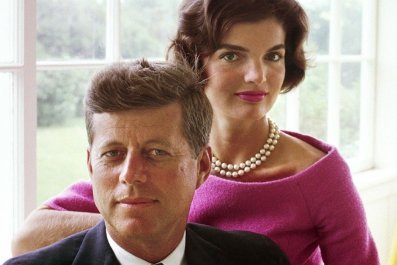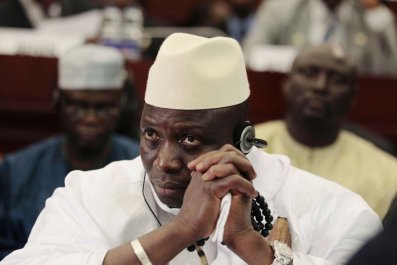If William T. Vollmann ever wins the Nobel Prize in Literature - as many speculate he will - he knows exactly what he will do with the $1.1 million pot the Swedes attach to the award. "It will be fun to give some to prostitutes," he says, sitting on his futon, chuckling, a half-empty bottle of pretty good bourbon between us.
He is neither flippant nor drunk, though more booze awaits us out there in the temperate Sacramento twilight. Vollmann became famous for fiction that treated the sex worker as muse - especially the street stalker of those days in the Tenderloin of San Francisco when AIDS was just coming to haunt the national psyche and the yuppie invasion was a nightmare not yet hatched. His so-called prostitution trilogy - Whores for Gloria, Butterfly Stories, and The Royal Family - is overflowing with life and empathy, nothing like the backcountry machismo of Raymond Carver or fruitless experimentation of Donald Barthelme, both oh-so-popular with young writers when Vollmann first came on the scene after graduating from Cornell in 1981. He approached the prostitute like an anthropologist, yet did so without condescension, writing in Whores for Gloria, "The unpleasantnesses of her profession are largely caused by the criminal ambiance in which the prostitute must conduct it."
He was a gonzo humanitarian, too: Vollmann once rescued a young Thai girl, Sukanja, from a rural brothel, installing her in a school in Bangkok; he later paid her father for ownership of the girl, essentially making himself the owner of another human being. ("She loves the school," he told The Paris Review in 2000.) So if sex workers reap some of that Nobel money, it will be only be because they have long served as Vollmann's subjects and companions, objects of his curiosity, his compassion, and, sometimes, his carnal impulses. He insists the last of these is not an occasion for shame. Of paying for sex, he once said, "We're a culture of prostitutes." You can, if you want, condemn Vollmann for abetting in the exploitation of women. But you also could, if you wanted, see his stance as more principled than that of the married man scrolling through Internet porn late at night on a private browsing window while wife and kiddies are asleep. If sex sells, one may as well honestly pay the seller for it.
And the suggestion that he could win the Nobel Prize is not at all outlandish, for Vollmann may be the most ambitious, audacious writer working in America today. At a time when so many narratives are stultifyingly small, he does not shy away from a 3,000-page treatise on violence, or a seven-volume history of white contact with Native Americans (Seven Dreams; four of which have been published), or a thousand-page book about the desiccated borderlands between California and Mexico (Imperial), where so many "illegals" meet their end. He has been to Afghanistan (twice), Yemen, Somalia, the Congo, Kosovo. He consorts with the voiceless - hobos, whores, junkies - to give them a voice. In both his fiction and nonfiction, he is after the elusive truths: why we will kill each other, why we lust after each other, why some are rich and some are poor, how much responsibility we have to one another.
Jordan A. Rothacker, a doctoral candidate at the University of Georgia, uses Vollmann's work in his classes and considers the author a friend (I met Rothacker at a Vollmann event in Brooklyn). He says that "to teach Vollmann's work is to teach my students of a historical and globally conscious voice, born of and still interested in this country. It is a rare place William T. Vollmann holds in contemporary literature."
Vollmann's questions, it should be said, are sometimes more satisfying than the answers at which he arrives. Some of his work is so obscure that it lapses into the unreadable. The early sexual stuff can be grotesque, and probably lost him some readers for good - a critic in The Washington Post once admitted that she "never had a conversation with a woman about his work. He just doesn't seem to come up on our radar." And many of his books could be cut by half without losing much thrust. His most popular work, Europe Central, is a novel about World War II that won the National Book Award in 2005. But at 800 pages of interlocking, frenetic narrative, it is still a heavy lift for a nation that sates itself on Fifty Shades of Grey and Clive Cussler. Once, when I was buying some Vollmann books at a shop in Brooklyn, the young woman behind the counter said, "I want to read him, but I don't know where to start." I wish that question were easier to answer.
Yet the challenges of Vollmann's work, such as they are, cower before his freakish mastery of the English language; even at their most frustrating, his books are beautiful. In Europe Central, he writes that "Russia is actually as blackly untidy as a page of a Dostoyevsky manuscript, with its excisions, spearpointed insertions, doodled bearded saints." That is perhaps the most dishearteningly accurate description of my native country that I have ever read. In Argall - in which he reimagines the "romance" between John Smith and Pocahontas, largely in anachronistic English - he watches the young girl doing cartwheels, writing that "Pocahontas will always be here; she is in every turning wheel of the taxicab." This is haunting, gorgeous stuff, alluding to the sweep of history in a way that few writers today would dare.
Nothing is going to make Vollmann stop writing. Some writers obsessively check their Amazon sales figures; I can assure you that Vollmann does not (he doesn't use the Internet, in any case). "If I didn't feel that I was doing something or trying to do something for others, then I would have very little excuse for the life that I lead," Vollmann tells me in a gentle, measured voice that, for all his peregrinations, has not lost the accent of Indiana, where he spent much of his childhood.
Nor is Vollmann, 54, the father of a teenage daughter, ready to retire - or even slow his pace. As we walk the streets of Sacramento, he tells me about a photographic project he would like to do chronicling the lives of poor people. He wants to write a book about what evil our reliance on carbon has wrought. He describes a "water atlas" of the United States that he was going to publish with McSweeney's, the San Francisco outfit run by Dave Eggers, whom Vollmann calls a "nice man." The project fell apart, but it may yet resurface.
"I have so much to do," Vollmann tells me, and when he says this, it sounds neither like a complaint nor subtle self-importance. If, as Aristotle said, happiness is a state of activity, then Vollmann is the happiest man on earth.
"I have a pretty good life," he declares as we sit in his spacious studio, which had once been a Mexican restaurant. He may not lead the cosseted existence of a creative writing professor, but that is largely by choice. After David Foster Wallace - an old friend, one who was so "gentle and sincere," Vollmann wistfully recalls - committed suicide in 2008, Vollmann says Pomona College contacted him about taking the plushly endowed Roy E. Disney Professor of Creative Writing chair that Wallace had occupied. He spurned the entreaty: "I don't want to live there in smogland," he says. The job eventually went to Jonathan Lethem.
He refuses to write books for short attention spans, books that might sell and, in turn, make things easier for his editor at Viking. And yet there is something deeply refreshing in Vollmann's refusal to compromise, his total commitment to his art. Bob Dylan once did a Victoria's Secret commercial; that's not how Vollmann rolls. He once gave the following advice to young writers: "Don't write for money."

Vollmann's latest, The Book of Dolores, is perhaps his most unusual, which is no small assertion. The premise is simple: Vollmann would dress as a woman, thus becoming a "sad old lady named Dolores." Like the book that bears her name, Vollmann's studio is adorned with portraits and photographs of Dolores, mugging for the camera, her face sometimes a smile and sometimes a frown; he shows me the closet with her wigs and dresses. In there is also the flak jacket Vollmann wears on some of his more dangerous excursions.
His reasons for turning into Dolores, as he describes them to me, are at once simplistic and somehow unimpeachable: "So much of the destruction on Earth has been wrought by men. Women are the ones who give life and try to pick up the pieces.... What a great gender they are." He adds that he wants to "understand them and honor them as much as I can." If this seems naive, remember that Nietzsche said that the human spirit begins as a camel, then morphs into a lion and, finally, becomes a child. Vollmann is that child, hopelessly curious, trying on dresses in his mother's closet because he wants to know her otherness.
In an odd twist, Vollmann's book on disguise comes on the heels of revelations that the FBI once considered him a potential suspect in both the Unabomber case and that of the post-9/11 anthrax mailings that killed 11 people. Vollmann was neither, but the taint of the investigation remains, although, as he tells me, "The main thing I have to hide is that I have nothing to hide." Nevertheless, he still says that his packages are routinely opened and that mail from abroad simply does not arrive sometimes. As he writes in a recent issue of Harper's, the surveillance state is composed of "Unamericans [who] do not truly honor the American Way of Life."
He loves America, the land, its people, and he says so frequently in his new book. His first novel, You Bright and Risen Angels, was partly inspired by his protests at the Seabrook Station nuclear power plant in New Hampshire; shortly thereafter, he ventured to help the mujahideen of Afghanistan in their fight against the Soviets (a fight aided by the Reagan administration's shipments of Stinger missiles), an unfruitful trip that produced An Afghanistan Picture Show: Or, How I Saved the World, which was recently republished by the small Brooklyn press Melville House. He has lived through two Bushes and one Reagan, but he is hardly happy with what he sees today, calling President Obama a "warmonger" and a "secrecy nut."
And though he is often compared in the press to the postmodernist trickster Thomas Pynchon, that's just critical laziness. Anyone who has read enough Vollmann knows that he admires no one as much as he does John Steinbeck and Walt Whitman, those rebellious patriots who loved the American land but not its political masters. In the opening to his Harper's essay on his own FBI file, Vollmann calls Steinbeck "the writer I have always considered the most American of us all."
I think also of the Whitman who calls himself "a curious boy, never too close, never disturbing them, / Cautiously peering, absorbing, translating." That is the Vollmann who rides the rails, who ventures in war zones, who smokes crack with prostitutes - if he does not tell their stories, who will?
"I know how little I know," he writes at the beginning of Poor People, before setting out to find out everything he can about poverty around the world, from the lots where the homeless camp in Sacramento to the slums of Phnom Penh. As the critic Michael Wood noted in The New York Review of Books, "the great virtue of his writing is that even at its windiest it tries to think with us rather than for us."
Robert L. Caserio, a professor of English at Pennsylvania State University who has studied Vollmann extensively, thinks Vollmann deserves a far greater audience: "When I consider Vollmann's gigantic energy and global reach, and consider that feeble, ill-writing Alice Munro has won a Nobel Prize, I am staggered by how pathetically shrunken our standards of magnitude have become." He adds that Seven Dreams "grandly revises American and North American history and economics. The revision, which takes the breadth of the continent for its inspiration, reminds us of the smallness, and the pettiness, of the national venture that began in 1776. It's a salutary reminder."
Rothacker says much the same: "It is a shame that William T. Vollmann's relevance needs to be explained. He is good, scary good, possibly the greatest living American writer, and I mean this with no hyperbole." He adds that he is "sure" Vollmann will one day get the Nobel. (It may come as little surprise that Rothacker has a Vollmann-inspired tattoo: runic symbols for "piss, lime and vitriol" from You Bright and Risen Angels).
But if you saw Vollmann on the streets of Sacramento (where he lives because that's where his wife practices medicine and his daughter goes to school), you would not think much of this middle-aged man in jeans and glasses, his hair brushed to and fro, his blue eyes suggesting the happy weariness of a traveler who loves the road. After we are done with the bourbon, we go to an upscale restaurant, where we are joined by my father-in-law. (He and Vollmann work together on homeless rights issues; Vollmann wrote about him in a Harper's article on the plight of Sacramento's vagrants.)
The waitress is pretty, and Vollmann asks her which of us is the most handsome, a question she gently brushes aside with laughter. He drinks an elderflower cocktail, which reminds me of the daiquiris so beloved by Hemingway - somehow out of character and but also perfectly in keeping with it. Steak tartare arrives; when I ask him how it is, he says, "It's the next best thing to cunnilingus." The ice cream makes him very happy, too.
He invites us back to his studio for a nightcap, but I have drunk plenty that evening and afternoon. We shake hands, and he says that he would like to one day hold my daughter, a toddler, in his arms. He says this with sincerity - as he says and writes everything, because William T. Vollmann knows no other way.

























